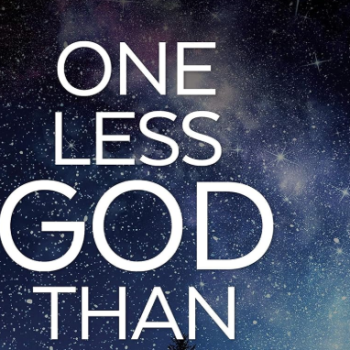
‘It must have been the moon because it was.’ Marvellous. These are the words of Norman MacCaig, a Scottish wordsmith of the Twentieth Century. This master of dry wit invents a sparkling new phrase in almost every poem. It’s his knack for combining unlikely words in uncanny ways that really makes his writing shine. Any lover of our English language can’t help savouring metaphors like, ‘Far off, the wizened / Bottle shapes stand: brown penguins.’ Little wonders like this are a staple in MacCaig. A miniature army of glass penguins... You can see the mental picture more clearly than the words in front of you.
But what I really like about MacCaig, aside from his wizardry with figures of speech, is how the wry Scot approaches the role of intellectual pursuits. With typical dry wit, he tackles the subject with insight. You see, the sort of thinking that goes on in universities quite often has little bearing on everyday concerns. Theologians are, let’s be clear, as complicit in this as anyone else. And reading MacCaig, you realise how this is not a new problem. Out-of-touch academics are all over his poetry. They’re never more than a few pages away, cooped up in their studies, ‘leaving a legacy of fourteen books / to the world.’ What is the place, then, of scholarship — theological or otherwise?
A memorable image of doing brain-work is found in the poem “Philosophy.” This piece deals with a female thinker playing around with ideas. ‘At home / she turns them all / into a pack of concepts, shuffles it, / cuts it and every time / turns up the joker.’ Abstract reasoning is a glamorous game, in which everybody marches constantly round in circles. Nobody knows when the debate is over, or what the rules were to begin with. So the whole thing waltzes on and on. And on and on. Then on and on again. Some theological discussions are centuries-old. Are body and soul two separate things? Can we prove God’s existence? No doubt we’ll be posing the same insoluble questions for centuries to come. As King Solomon wrote in Ecclesiastes, ‘of making many books there is no end’ (12:12), which is all the more true today — what with publishing houses and university presses pumping their paperbacks out in spades. Everyone and their dentist wants the last word on every subject.
And so, the philosopher dances round in figures of eight. ‘She manages / to trampoline and walk tightropes / in her own mind, does philosophy, / that turner of outsides / into insides.’ Another important observation here. Philosophy promises a hidden world of knowledge. It’s a form of occultism in this way. But why should obscure wisdom be so highly regarded? Anything worth knowing is available for everyone to know; ‘For the invisible things of [God] from the creation of the world are clearly seen, being understood by the things that are made’ (Romans 1:20). According to St. Paul, you don’t have to take out a student loan or win a hefty scholarship to come by knowledge of any significance, as the higher education industry would have it. University, at its worst, is a market stall for buying a place in the cultural elite. At its best, it supplies opportunities to repay the community that raised you.
Then there’s the poem “Woodcocks and Philosophers.” This one builds a parable around an otherwise unremarkable occurrence. ‘The woodcock I startled yesterday / clattered off through the birch trees / without starting to philosophise / and write a book about it.’ Remember how Jesus taught us to deal with worry by banishing overthinking? ‘Behold the fowls of the air: for they sow not, neither do they reap, nor gather into barns’ (Matthew 6:26). Accordingly, MacCaig’s woodcock embodies the carefreeness that our Saviour ascribes to the birds. It simply flutters away twittering “Hakuna Matata,” relatively undaunted. Of course, it’s ridiculous to suppose that an animal thinks discursively like this. But the underlying point is a valid one: that a lengthy treatise isn’t required after every waking incident.
In contrast, ‘It amazes me,’ writes MacCaig, ‘that loafing philosophers / don’t all die young.’ King Solomon was onto this point as well; ‘and much study is a weariness of the flesh’ (Ecclesiastes 12:12), as any student is well able to attest... It isn’t a healthy way to live, always being cloistered in your own head. And a further pitfall of intellectualism is the way that academics can use it as a means of escapism. Again, this is the academy at its worst rather than its best. As MacCaig observes, ‘when reality / saunters by, they crash off / through book after book, without reading / one blessed word.’ It seems the words on the page are a secondary concern. After all, nobody is taking them in. The primary goal of endless intellectualizing is to evade the real world as long as possible. That’s what a doctorate is for!
And where an intellectual hides out is, you guessed it, in the study. Hunkered under a parapet of papers. Perhaps I wouldn’t go this far, but MacCaig seems, in “An Academic,” to portray the desk in the study as the coffin where wonderful minds go to die. Confronting some enlightened soul, he thunders, ‘You sit at your fat desk, starching / Your brains.’ Now, there is a vast world outside the study, which the academic is missing. Counterintuitively, going to extremes in pursuit of an education is the best way to lose all zeal for learning. So MacCaig supplies a timely wake-up call. ‘Trains / have to reach their destinations. / But yours, that should be / clattering and singing, / through villages and landscapes, never / gets out of the shunting yards.’ Imagine if Moses had similarly sat and ruminated on the burning bush for the rest of his days. The Hebrews would’ve never left Egypt.
What the academic hasn’t accepted is that some things are too great for human minds. We’re mortal creatures. This is the upshot of God’s dramatic speech to Job at the conclusion of that startling book; a mystery will always escape our limited understanding. Essentially, MacCaig is riffing on the same theme; ‘What a job is this, to measure / lightning with a foot rule, the heart’s / turbulence with a pair of callipers.’ The tools of intellect are too humble for the task. Life goes on, however, whether we understand it in the moment or not. ‘I’m a simple man — I believe / you were born,’ affirms MacCaig, ‘I believe it / against all the evidence.’ Better to accept some fundamental things on faith rather than call everything into question.
One final MacCaig poem, “University Staff Club,” is also about thinking. Consider the title. This isn’t your North Belfast or West Yorkshire working men’s club. It’s an exclusive society for elite intelligentsia. The poem is addressed to a certain professor, perhaps every professor, who inhabits their own abstract world while ignoring the real one. ‘Tilt your nose, Mr Professor,’ MacCaig urges him, ‘and sniff // The vinegar of existence with a wild rose growing in it.’ You can smell the acidic tang wafting up from the dripping page. A pungent summons back to the real world where the corduroy jacket is a whispered rumour from yesteryear. In other words, return to planet Earth.
MacCaig wants to know from this professor, ‘Are you so wise / You can add one more to the world’s impossibles?’ There is an arrogance, we can surmise, in how the professor views his work. As if he had somehow mastered all the ‘impossibles’ there are in the world, the professor thinks he can invent a few of his own that the Creator hadn’t thought of. God rested on day seven having left a job incomplete. And, as pure luck would arrange it, a professor is here to help him finish what he started. Why, how kind! It’s a modern, up-cycled version of the gnostic schism. The material world is bad and it has to be transcended in the higher plane, where salvation is found. And so, MacCaig is conducting a latter-day heresy trial through poetry; ‘Mr Professor: there’s a whiff // Of heretical impatience in your fantasies / That won’t let the world be.’
Norman MacCaig, an Edinburgh University graduate in Classics, is not anti-intellectual by any means. That isn’t, I hope you’ll have realised, what I’ve been arguing all this time. But he is, rather, sceptical of academics when they construct a play-pen of abstract ideas and insulate themselves away from life beyond the academy. Thinking is good. It’s a wonderful gift. Only read the letters of St. Paul or St. Peter and you’ll see how well the Apostles built an argument. Where academics go wrong is when their work turns into navel-gazing. And when a lively mind is little more than a passport into the cushy ranks of a disconnected elite.
As Christians, we can do no better, in pursuits of the mind as in all things, than look to Christ. Our Lord was a fabulous teacher among a rabble of charlatans. But he never caved in to the trappings of intellectual elitism. Quite the opposite, you’ll recall; ‘Beware the leaven of the Pharisees’ (Luke 12:1). Jesus wasn’t interested in acclaim. And he would’ve abhorred the cliquishness of a “University Staff Club.” What he wanted was to leave this world in a better state than that which he found it. And that was the purpose of his ministry, culminating in the Cross. It was all for the good of others. Never for his own selfish gain.
2/10/2022 1:11:25 PM





